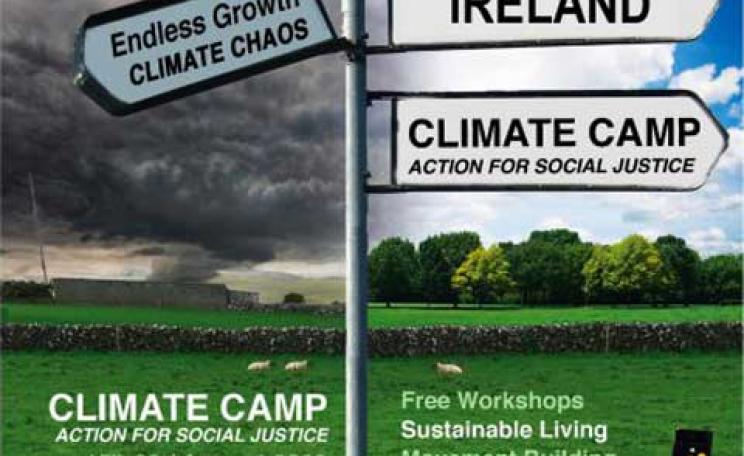Local residents have campaigned for years against this mine
In today's economically strapped times, and in a country where the wealth disparity continues to grow, our actions to halt runaway climate change are, at present, too small, too minor and too abstract to make an impact in the scale we want it to.
It is embarrassing.
An embarrassment, by no means fully the fault of our organisation, but an embarrassment nonetheless. An embarrassment that there is a gaping divide between our intentions and the very people we earnestly desire to reach.
Right now, our intentions, our passions, and our desire to break the law for justice mean nothing to the boy in the park chasing smack to escape his poverty; to the single mum, laden with heavy bags working two jobs; to the families eating dog food for Christmas dinner and to the many communities of ethnic diversity, for whom everyday is a grim battle for food, water, shelter and above all some semblance of dignity.
Why it matters to the poor
In order to build the movement, we must draw links between people's daily realities and runaway climate change.
Throughout the UK it is disproportionately poorer communities who live in the shadows of carbon-hungry industry, queueing for the doctors with outrageous levels of health defects and turning to their neighbours for support, only to find they have packed their bags and left to escape the industries.
Climate change is an issue of civil liberties for the poor. When we are fighting climate change we are fighting inequality too.
Scotland's protest
Douglas is one of the front-lines in the resistance to coal exploitation in the UK. Scottish Coal, the UK’s largest open cast producer, has been given permission to mine 1.7 million tonnes of coal from Mainshill Wood in Douglas, South Lanarkshire.
The decision by South Lanarkshire Council has enraged local residents who for years have campaigned against this mine. There are four other mines in the area, making it one of the most heavily mined areas in Europe.
Year upon year, asthma and cancer levels have grown because of the toxins and now the area has the highest cancer rates in Europe.
The war against climate change is fought not just against the decisions made in the boardrooms of climate criminals, or on the front lines of Climate Camp: its casualties can be found in the hospital beds of places like Douglas.
Scotland's Camp for Climate Action is right now standing proud with the community in Douglas. In 2009 there are Climate Camps all over the world and Douglas is the site for Scotland's first camp.
Dan Glass is a Camp for Climate Action organiser
Useful links
Climate Camp Scotland
Protester glues himself to Prime Minister







